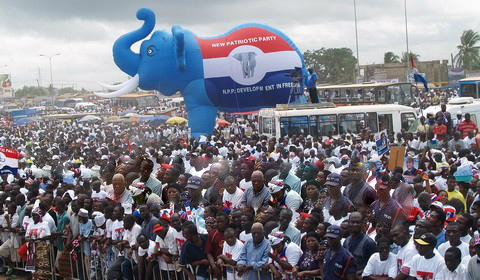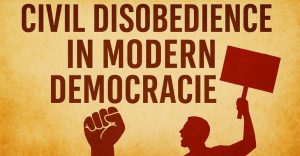
Within Ghana’s vibrant political tapestry, few parties have wielded influence as enduring and pervasive as the New Patriotic Party (NPP). This party, traceable in its tradition to Danquah-Busia, enacts itself as a flag-bearer of liberal democracy and capitalistic ideals. Its critics argue that beneath its veneer of democratic governance lies a cleverly crafted political machinery that is strikingly similar to a mafia organization: centralized power, steadfast loyalty, and the calculated exploitation of resources and relationships.
Traditional Roots: The Danquah-Busia Tradition
To understand the NPP’s alleged “mafia-like” operation, one must delve into its ideological ancestry. The Danquah-Busia tradition, named after J.B. Danquah and Kofi Abrefa Busia, emerged in opposition to Kwame Nkrumah’s socialist and pan-Africanist ideology. Rooted in liberal economic principles, it championed individual enterprise, private sector development, and limited government intervention. This capitalist ethos became a cornerstone of the NPP, influencing its policies and, arguably, its internal operations.
In Ghana’s early post-independence period, Danquah and associates were behind the establishment of the United Party, a precursor to the NPP. Opposition against Nkrumah’s Convention People’s Party often developed into political rivalries marked by charges of sabotage and foreign collusion. This largely adversarial foundation has informed the NPP’s combative political approach in this paper: an essential survivalist mentality, some critics argue, boils down to a “by any means necessary” attitude to consolidating power.
The NPP as a Political Mafia: Structure and Control
At the root of the NPP’s alleged mafia-like operation is a party organizational structure that seems to stress loyalty and strategic ethnic alliances over merit and inclusivity. The party stands accused of relying heavily on its ethnic Akan, with Ashanti and Akyem subgroups and entrenching an almost impregnable bloc of voters that critics argue it tends to exploit for political gain. This base has so far remained loyal, despite growing economic hardships and allegations of corruption within the current regime.
The mafia comparison begins to take shape when consideration is given to the centralization of the NPP’s decision-making and the control over state resources. The presidency of Nana Akufo-Addo has been accused of utilizing the powers of the state toward the enrichment of a few allies and relatives, who are popularly referred to as the “Akyem Mafia.” For example, reports of inflated contracts and cronyism in infrastructure projects, such as the controversial PDS scandal in Ghana’s energy sector, have fueled these claims. These actions resemble the mafia’s signature behavior of wielding influence in order to siphon resources for the benefit of a tight network of close associates.
Succession Politics: Breaking the Chain of Command
One of the most illustrative examples of internal power dynamics in the New Patriotic Party is its latest leadership tussle. For all of these years, an implicit line of succession saw the likes of former President John Agyekum Kufuor give way at the helm to Nana Akufo-Addo. And yet, that succession pattern, which should have naturally fallen to Alan Kyerematen-a longtime stalwart and apostle for the party’s economic dogma-was broken. On the contrary, the party has closed ranks behind Vice President Mahamudu Bawumia and a controversial renegade, Francis Addai-Nimoh.
The disruption in succession generates questions regarding motives for choices of leadership. Critics argue that Bawumia and Nimoh are preferred not for their viability at the polls but for their perceived malleability. In effect, by setting aside a better candidate like Kennedy Agyapong, a strong critic of party corruption, the NPP seems to put loyalty above competence. This approach ensures that power lies within a controllable circle, just like how the mafia grooms successors that protect “family” interests.
Abuse of Power in Governance
Beyond the internal politics of the NPP, its very attitude to governance speaks of the mafia-like tendencies of this party. Accusations against the Akufo-Addo administration of abuses of power, suppression of media freedoms, and judicial interference have been rife. For example, investigative journalist Anas Aremeyaw Anas was intimidated following his exposures of corruption in the judiciary and political elite; his colleague Ahmed Suale was tragically assassinated in 2019, in a chilling reminder of the risks facing dissenters.
These are further compounded by concerns of economic mismanagement. Ghana’s public debt has increased under this regime, accompanied by accusations of misappropriated loans and reckless spending. One controversial deal, the Agyapa Royalties arrangement, aimed at monetizing Ghana’s gold resources, attracted accusations of opacity and a potential conflict of interest involving close associates of the president. These acts constitute the pattern of exploiting state resources for personal or factional gain, characteristic of organized criminal syndicates.
The Strategic Use of Ethnic Politics
Perhaps the most enduring feature of the NPP’s strategy is its calculated use of ethnic politics. By securing the loyalty of the Akan majority, the party creates a reliable voter base that remains steadfast even when disillusioned. This strategy parallels the mafia’s reliance on familial or community ties to maintain power. The appointment of Addai-Nimoh, a descendant of Ashanti royalty, is emblematic of this approach in that it tends to use cultural pride and regional loyalty for its own ends.
Conclusions: Reform or Business-as-Usual?
As Ghana prepares for its next general election, the NPP faces a critical juncture. Will it reform its practices to align with its democratic ideals, or will it continue to operate as a highly centralized and self-serving machine? The choice will not only determine the party’s legacy but also shape the future of Ghana’s democracy.
In sum, though the NPP’s governance credentials, including the accomplishment of free senior high school education in Ghana, are great, its mafia-like operation brings really distressing questions regarding its long-term influence on Ghanaian politics. Unlike a mafia, a political party should be of service to the broader interest of its citizenship, not just to their leaders and loyalists. It is only through introspection and genuine reform that the NPP can reclaim its place as a true champion of liberal democracy.
Haleed Sulemana Namyella (send him mail) is a Human Rights Advocate & Development Professional . He Serves as a research Associate of the Institute for Liberty and Economic Education (ILEE).
DISCLAIMER: “The views expressed on ileeghana.org are not necessarily those of Institute for Liberty and Economic Education (ILEE)”.





